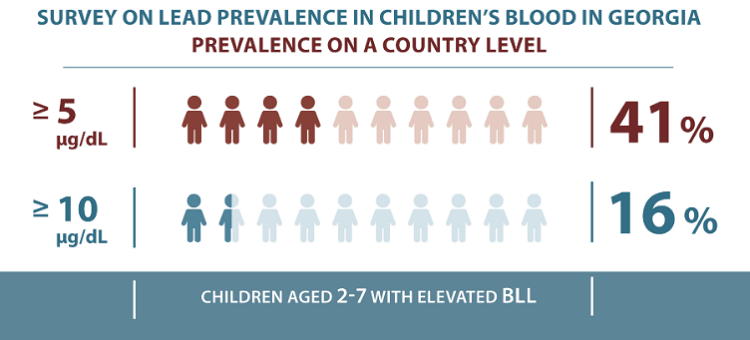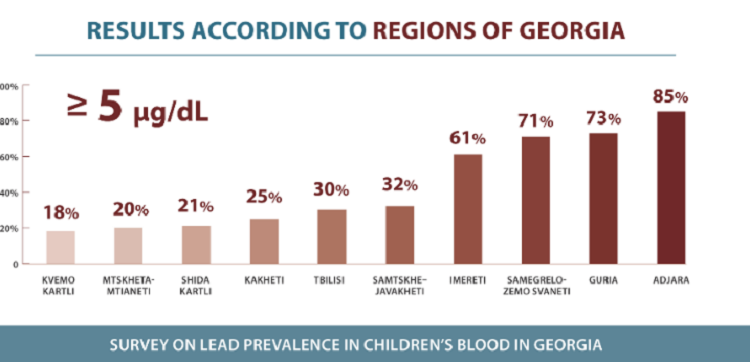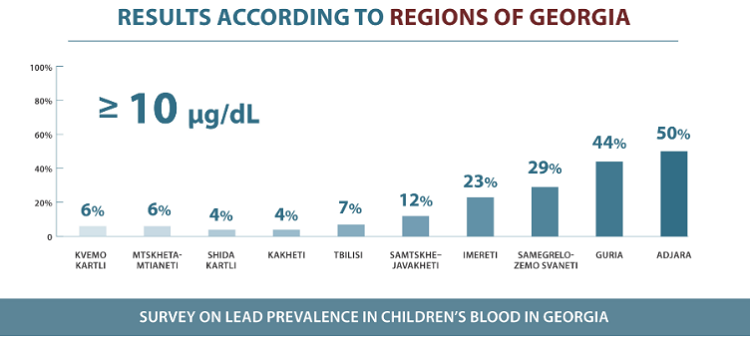Results of national survey unveiled: 41% of Georgian children have elevated blood levels of lead

The Georgian government says it will develop a plan to identify major sources of lead exposure. Photo: UNICEF Georgia.
The first nationwide survey has been released, with 1,578 children tested, which reads that 41 per cent of Georgian children have elevated blood levels of lead.
In Georgia, 41 per cent of children have blood lead levels greater than or equal to 5 micrograms per decilitre (µg/dL), and among them, 16 per cent of children have blood lead levels of greater than or equal to 10 micrograms per decilitre (µg/dL). 25 per cent of children have blood lead levels between 5 - 10 μg/dL."
 By UNICEF Georgia.
By UNICEF Georgia.
There is no known level of lead exposure that is considered safe for human beings. Yet, a measurement of 5 micrograms per decilitre (µg/dL) of whole venous blood is the reference level at or above which the World Health Organisation recommends initiating public health actions.
The study was conducted between September and December 2018 as part of the Multiple Indicator Cluster Survey (MICS), the largest household survey worldwide in which Georgia participated.
 By UNICEF Georgia.
By UNICEF Georgia.
During the study, samples of venous blood were collected from 1,578 randomly selected children from 2-7 years of age across Georgia and were sent to the Italian National Institute of Health, one of the leading public health institutions in Europe, UNICEF Georgia reports.
We appreciate the acknowledgement of the problem by the Georgian government, as well as the government’s strong commitment to undertake efforts to develop short-term and long-term response strategies and actions. Identification of the sources of lead exposure should be the next step in addressing the problem”, Gottfried Hanne, the UNICEF deputy representative in Georgia, stated.
 By UNICEF Georgia.
By UNICEF Georgia.
The Georgian government has stated that it plans to develop a plan to identify major sources of lead exposure, and to develop short, medium, as well as long term measures to neutralize, isolate and manage lead contaminated sites.
Head of NCDC Amiran Gamkrelidze says that 650 children, who have elevated blood levels of lead, will undergo a repeated test.
Both the test and the treatment will be covered through the state budget,” Gamkrelidze said and added that the treatment will be carried out by the medicines which are rich with iron and calcium, as they prevent absorption of lead.
The government also have plans to prevent market circulation of lead contaminated products and conduct public awareness campaigns.
Lead can harm the production of blood cells and bone marrow. It complicates the absorption of calcium needed for strong bones.
Lead damages nerves and cause brain and kidney issues.
 Tweet
Tweet  Share
Share